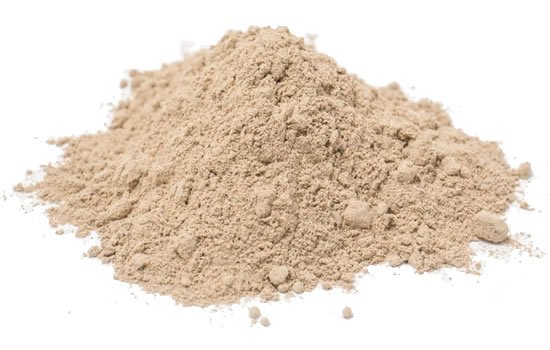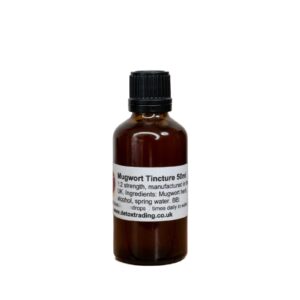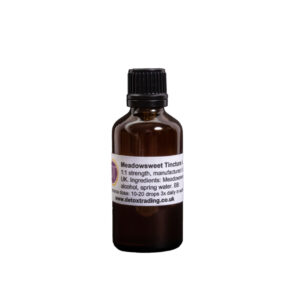Moroccan Rhassoul Clay
The word ‘rhassoul’ is derived from the Arabic word ‘rhassala’ which means washing. Moroccan women have used it for natural body care for over 1,400 years. Research confirms the remarkable properties of this mineral-rich clay, it reduces dryness, removes impurities, unblocks pores, improves skin clarity and elasticity resulting in a general smoothing of the skin.
Moroccan rhassoul clay can be used as a daily cleanser instead of soap and as a restorative hair treatment. It is a superb natural shampoo.
One of the clay’s most impressive properties is the absorption of harmful substances and detoxification. This is due to a high rate of ion exchange. Rhassoul also has natural antimicrobial properties, making it an effective ingredient for external detoxification. Clinical testing has shown rhassoul to be effective in improving skin elasticity, unclogging pores, and removing dead skin cells and excess surface oils. It can also be used as a scalp treatment to absorb oil, dirt, sebum and cleanse and clarify hair.
Check out our full range of clays and detox products here.
Suggested use:
For external use only, suitable for all skin types.
Ancient cultures have used Moroccan rhassoul clay for centuries to cleanse their hair, face and body. The root word for rhassoul literally means “washing”! Today, rhassoul is used as a base in many spa-quality masks and washes.
When mixed with a liquid such as water that is massaged into the hair or skin, rhassoul gently exfoliates with a fine grit. It binds to dirt, oils and other impurities and washes them away when you rinse.
You’ll benefit from washing your hair because, unlike shampoo, rhassoul does not contain detergents, surfactants, parabens, sulfates, preservatives or thickeners. Also, shampoo can sometimes clean too well by stripping away sebum, natural protective oils made by the skin.
Conditioning With Rhassoul Clay
To create a 2-in-1 wash and conditioning mix for hair, combine rhassoul clay with liquid and a natural oil and/or butter, such as:
For very dry, chemically treated or damaged hair:
• Natural, unrefined shea butter
• Raw cocoa butter
• Virgin coconut oil
• Castor oil
• Sunflower oil
• Argan oil
For light conditioning
• Jojoba oil
• Coconut oil
• Extra virgin olive oil
• Avocado oil
Mix the desired quantity of rhassoul in a bowl (not metal) add warm spring/filtered water until it forms a paste, apply to face, hair or body. Leave between 5 and 10 minutes before rinsing.
Afterward, it is recommended to use a good quality oil of your choice to moisturize the skin.
Rhassoul clay face mask
Ingredients
4 tablespoons rhassoul clay
1 tablespoon epsom salt
½ cup of water
3 tablespoon of honey
3 tablespoons lemon juice
Directions:
1. Put rhassoul clay soap powder in a bowl and add water and stir to desired paste
2. Add all the other ingredient, stir and leave for 10 minutes
3. Clean the face with warm water
4. Apply the paste smearing evenly on the face and the neck. A soft brush can be used to spread the paste
5. Leave it for 20 minutes, rinse with water, dry it and apply desired moisturizer oil.
Rhassoul honey and lemon hair mask
Ingredients:
3 tablespoons of rhassoul clay
1 tablespoon of liquid honey
½ freshly squeezed lemon juice
3 tablespoons of warm (not hot) water
Directions:
1. Mix honey, lemon juice and warm water first then add to the rhassoul clay in a ceramic or glass bowl until it forms a thick and smooth paste.
2. Apply on wet hair and massage your scalp and hair thoroughly and let the mask sit for 10 minutes.
3. Rinse well.
4. Shampoo if necessary.
PS: Rhassoul clay can dry hair; to protect your hair, I suggest using a little bit of olive or jojoba oil on the ends before you apply the mask.
Packed on premises that handles nuts & seeds.
Allergen free from:
Peanut, Peanut Oil
Tree nuts
Sesame Seeds
Milk & Derivatives
Eggs
Fish
Shellfish
Soya
Wheat & Gluten
Sulfites
Other Known Allergens
Free from any GMO






